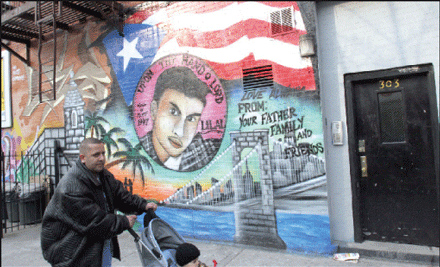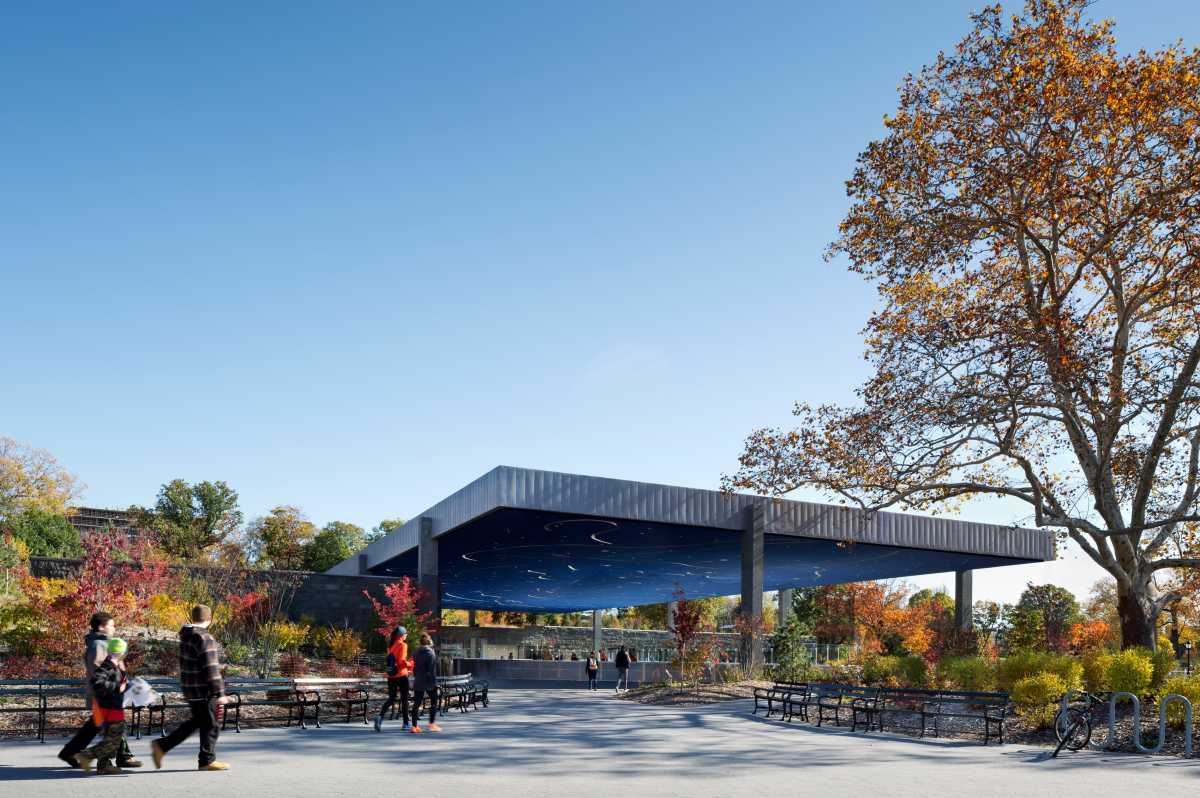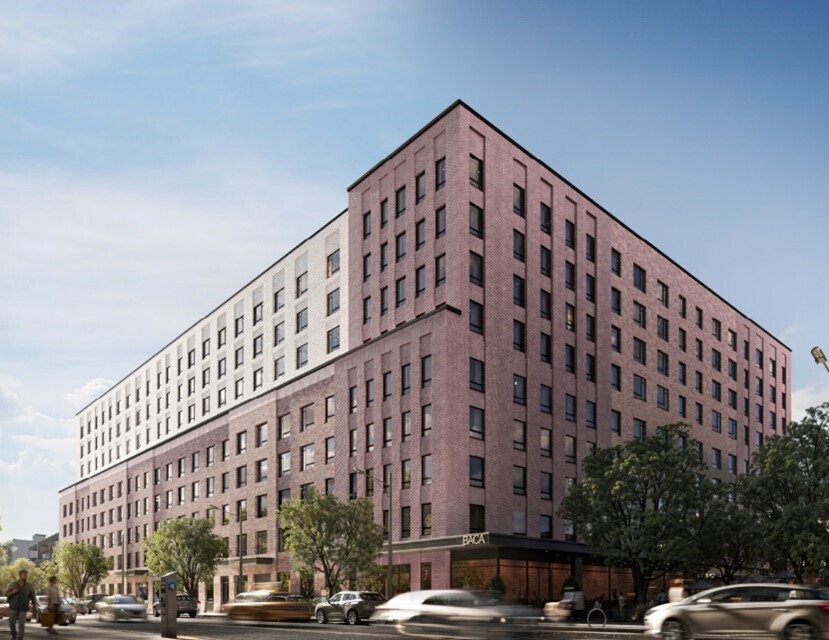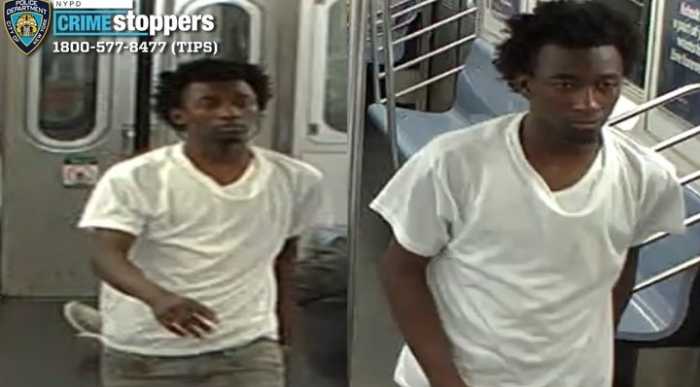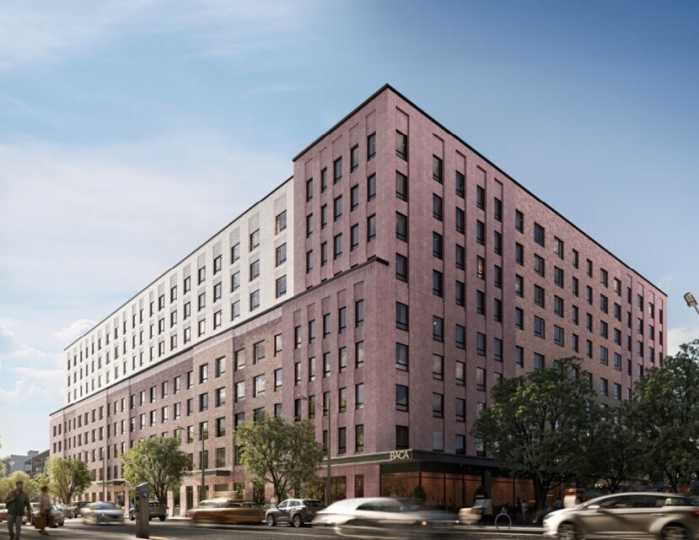By Julie Shapiro
Congressmember Nydia Velazquez wants to put decisions about Puerto Rico’s future back in the hands of Puerto Ricans. A commonwealth — neither a state nor an independent country — Puerto Rico is often caught in the middle of a heated debate about its identity.
At the end of last month, Velazquez introduced the Puerto Rico Self-Determination Act of 2007. The bill, with 25 co-sponsors, describes a process for Puerto Ricans to decide the status of their home.
“Any proposal regarding the future of Puerto Rico must first come from Puerto Ricans,” said Velazquez, who was born on the island. “Self-determination needs to come from the people of the island — to do otherwise would be tampering with their free will.”
A Democrat, Velazquez represents most of the Lower East Side, much of the East Village and parts of Brooklyn, including Williamsburg, Greenpoint, Brooklyn Heights and Gowanus. Her 12th Congressional District has a large Puerto Rican constituency.
There are three broad possibilities for Puerto Rico’s future: statehood, independence or the status quo. Puerto Rico is currently a United Sates commonwealth, which is less attached than a state but not as independent as if it were its own country. Puerto Ricans can serve in the U.S. military and be drafted, but they do not participate in presidential elections and have only limited representation in Congress: Puerto Rico is represented in the U.S. Congress by a resident commissioner, who is not allowed to vote where his vote would represent a decisive participation.
The bill suggests that the Puerto Rican government call a constitutional convention, so representatives can compose a self-determination proposal. Puerto Rico would then hold a referendum on the proposal, after which it would go to the U.S. Congress for approval.
The bill “encourages a fair, unbiased, comprehensive, democratic process for the people of Puerto Rico,” Velazquez said. “It is for them, not Congress, to determine their status. Congress should not act until Puerto Ricans decide this issue democratically.”
Former City Councilmember Margarita Lopez supports Velazquez’s proposal.
“The congresswoman has always been a person that has stood up for justice for our island,” said Lopez, who has known Velazquez since college in Puerto Rico.
Lopez was born in Puerto Rico, and used to believe she should have a say in Puerto Rico’s future, but she’s changed her mind.
“I don’t think I have the right to determine what should be the reality of Puerto Rico,” she said. “That should be the people who live there, who have to deal with the problems of day-to-day.”
Roberto Mercado, an East Village resident and Puerto Rican activist, hadn’t heard about the bill, but said, “If [Velazquez] introduced it, I don’t expect anything other than the status quo. She represents the status quo in Puerto Rico.”
Unlike Velazquez, Mercado strongly believes that Puerto Rico should be independent.
“It is its own country,” he said. “The only thing holding us back is a bunch of laws.”
Puerto Rico’s status as a commonwealth is immoral, Mercado said. Among other affronts, he is upset that the Puerto Rican flag must always fly below the American flag.
“It should be an embarrassment to every citizen in the U.S. that you have a colony,” he said.
Mercado was not born in Puerto Rico, but “Puerto Rico was born in me,” he said. Mercado’s parents were born in Puerto Rico.
There is another bill about Puerto Rican self-determination currently in Congress, said Juan Rodriguez, president of the New York chapter of the Puerto Rican Independence Party. The bill, sponsored by Congressmember Jose Serrano, advocates a referendum that gives Puerto Ricans two options: remain a territory or move toward a permanent alternative.
Serrano’s bill could be “the first step to break the ice,” Rodriguez said, “to ask Puerto Rico, ‘Do you want to continue this way or do you want to change?’”
Serrano, also a Democrat, represents the Bronx’s 16th District, including Mott Haven, Hunts Point, Morrisania and Fordham, another district with a heavy Puerto Rican population.
However, Rodriguez dislikes Serrano’s bill “because you could have a hundred more referendums and the issue could still not be solved,” he said.
Serrano’s bill has 94 co-sponsors, according to the Library of Congress Web site. A bill similar to Serrano’s and one similar to Velazquez’s proposal both appeared in Congress last year, but without results, Rodriguez said.
Rodriguez reiterated that he respects Velazquez, but he said her proposal is “more of a political ploy than any attempt to change [Puerto Rico’s] status.” Rodriguez believes Puerto Rico should have called the constitutional convention on its own, rather than wait for Congress to direct it to do so.
“Puerto Ricans should work together to move forward, but we can’t because we’re politically divided,” Rodriguez said.
Rodriguez doesn’t believe that Puerto Rico can stay forever in this in-between position of a commonwealth. Nor does he see a future for Puerto Rico as a state, because of the cultural and economic differences between Puerto Rico and the United States. That leaves him with the one option he advocates: independence.
“We’re not anti-American,” Rodriguez said of the P.R. Independence Party. “We’re anti-the relationship that has been established that’s not favorable to the people of Puerto Rico.”
However, Rodriguez sees difficulties ahead in trying to sever ties with the U.S., the advantages of which, many ultimately would not want to lose. For example, according to Rodriguez, 55 to 59 percent of Puerto Ricans on the island receive food stamps and all are eligible for Social Security.
On the other hand, there’s a major obstacle to statehood — mainly that Puerto Rico has a huge debt of $45 billion, he said.
“I doubt the U.S. would be willing to incorporate a state debt of $45 billion,” Rodriguez noted.
For her part, Lopez says she is open to different possibilities for Puerto Rico, but she also believes that independence must play a role.
“Every nation is entitled to self-determination,” she said. “We should not be surprised or second-guessing the desire of any country in the world to be free.”
Even statehood would require independence, Lopez said.
“If Puerto Rico would like to become a state, they should be given that opportunity,” she said. “But first you have to let them be free.”
Lopez hastened to add that she is not advocating a specific path for Puerto Rico.
“[Puerto Ricans] are entitled to make that decision,” she said. “Whatever decision they make is fine with me.”



